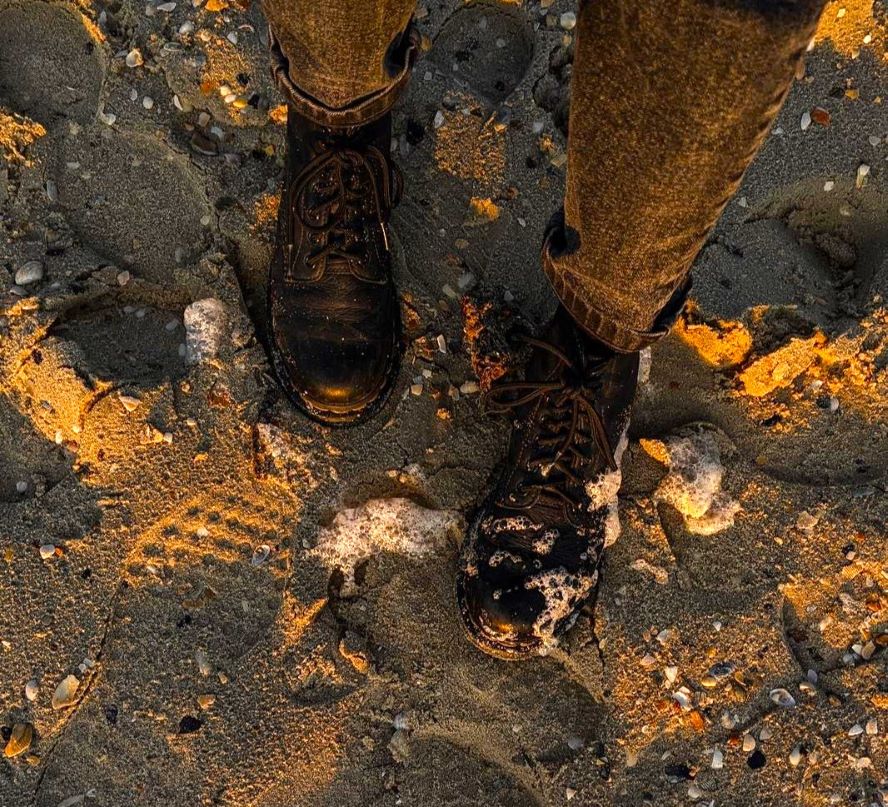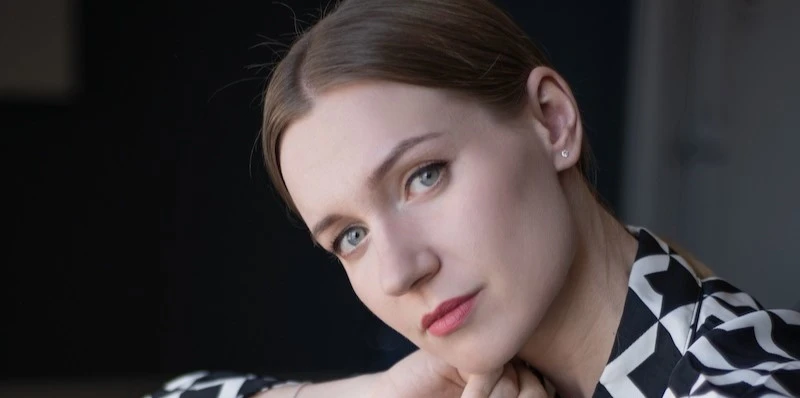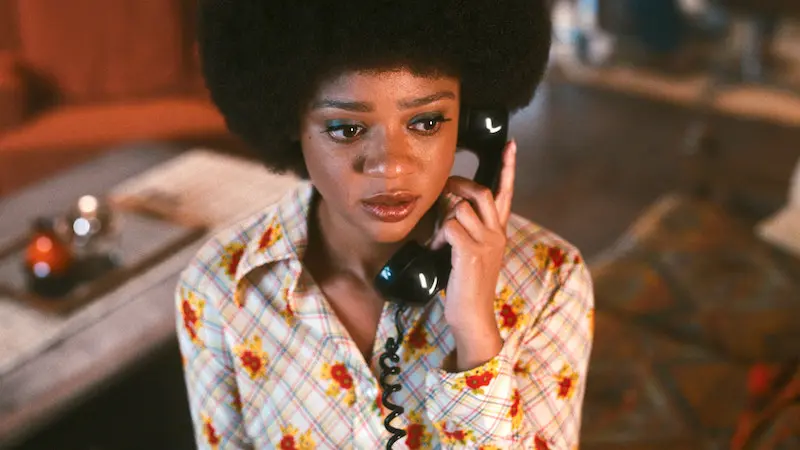TV series The Big Cigar, interview with Alessandro Nivola and P. J. Byrne
Discover exclusive interviews with the cast of the TV thriller series The Big Cigar: Alessandro Nivola and P. J. Byrne
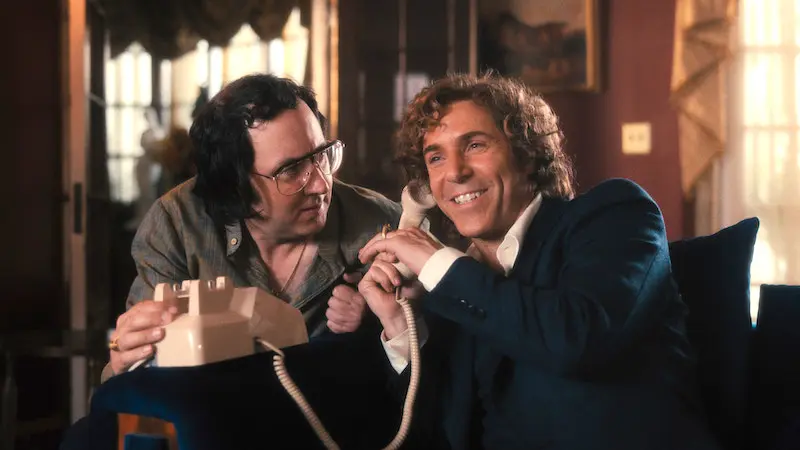
The Big Cigar is a streaming TV series. The cast includes André Holland, Alessandro Nivola, Tiffany Boone, P. J. Byrne.
Jake Fraczek: Hey guys, Jake Fraczek from Dailybloid, from Italy.
PJ: Jake, my name is Jake as well, it's crazy, I'm here. (laughter) Yeah, it's great. If you're from Italy, he speaks Italian and I'm an Italian citizen, so there we go
Alessandro Nivla: So am I.
PJ: Oh, you're a citizen too?
Alessandro: I am, yeah. No, I say I'm a citizen in Italian.
PJ: Veal Piccata, there we go. (laughter)
Jake Fraczek: My editor will be very pleased. With the show flashing back and ahead, dancing between different time periods within the story, was it a challenge for you two to match the correct moods and energies of the characters throughout the evolution of the story within the series?
Alessandro: Yeah, I mean, that's always a challenge. I mean, well, I think, I don't know how you (PJ) did it, but I basically sort of mapped out the whole story from start to finish, and then you kind of like color code your script or something to just like line up with each particular year or moment in the bigger story. But, no, I mean, I think both of these two characters evolve a lot through the bigger arc of the story, and one of the benefits of... doing a limited series, like six or eight episodes, is that through the six episodes, you can really trace a complete story that has a beginning, a middle, and an end.
And so I treated it really like I would a film that I was in, where obviously, when you're shooting a movie, on any given day you might be shooting the last scene of the movie, or you might be shooting the first scene or somewhere in the middle, and you have to, of course, be aware of emotionally where the character is at, at any given moment. And yeah, in both of our cases, they go through so much that it was important that we did that. But yeah, certainly I had little color -coded sticky things or whatever in my script on each page so that I knew, “oh, this is 1974, this is 1969, this is 1972.”
PJ: I do a thing, though, I'm very hyper -aware, also, of yes, he's gonna have a journey, and then how am I gonna insert different choices that I… so my journey will also affect me emotionally as I go through it. So he's sort of peaking properly to make it more interesting. He's crescendoing, if you will. And I also do another big thing, where I honestly try not to know…I try not to be super aware of what's going on with the other characters, because Steve Blauner, at the time, would or would not know certain things, and I don't want that to influence any of my choices. So even when I'm reading the script, I kind of gloss over certain areas because if my character wouldn't know that's happening, or a certain period in history that happened that wasn't influencing me, I'm very, very quick with it because I try to want to forget that, because I don't want it to influence my choices or how I'd react with him or anybody else in the show.
Jake Fraczek: There's a scene in the series where the character Bert says to Huey Newton, “that's the power of the silver screen”, and he's referring to the film The Battle of Algiers and the impact it had on influencing further awareness, understanding, or activism on that specific matter. Do you two see any similarity of that power here with this story in the series?
Jim Hecht - screenwriter: We can only hope, right? I mean, yeah, you know, I got into this profession…I was like gonna go to law school and try to get into politics and stuff like that. And it was a conversation that I had on the beach with my uncle, where I just sort of…he got me to see that the media is, at least for me, as more effective way to change the world in a positive place. So that scene is something in the show that I really relate to.
The reason why I got into this job was to try to affect that kind of change. I had had those experiences when I was a kid and saw things that changed my value structure and formed the person that I was, so I understood the power, and that's what we're trying to put in those scenes. And if you notice, it's The Battle of Algiers that Huey is walking out of with Bobby Seale in episode, I think it's three or four. Yeah, four. and he's talking about (Franz) Fanon and the impact that that movie had on him.
So, when Bert was able to contextualize the power of the silver screen, it was something that Huey in that scene already deeply understood because Fanon and the stuff from Battle of Algiers fired him up to do the things that he did, some of the intellectual breakthroughs that he had in forming the party (The Black Panther Party).
So yeah, I mean, that's the dream, right? I mean, if you could ask us if we would have anything be it awards or viewers or whatever, I mean, you need viewers to do this, but the most important thing you could do this with this project for us, the dream is like, effect a change in the world that makes it a better place. Yea, that’s it.
Janine Sherman Barrois - screenwriter: I think a lot of people feel disconnected and they don't know how to do something in their community. And Huey, Newton and the Panthers saw literally police brutality, they saw the Constitution, they realized they could actually carry guns and speak truth to power, and they did it.
And that made gun control happen for the first time in this country. They then decided, we're gonna utilize that power. And Huey said, I'm gonna open these social programs and I'm gonna change the world by feeding kids.
And everybody thinks that it's the guns is the reason why the American government was after Huey. It was actually because he was feeding children, making pancakes for them in the morning. So if kids see this today and they see something happening wrong in the world and decide they're going to say something, speak up or make change, that would be the best thing that could happen to this.
Jim Hecht: I just wanna follow up that, what you're saying is like the most important thing, right? Because we live at this time when we feel so powerless about all these things, and it feels like the world's on fire, and global warming, and if you're in America, there's guns on the street and whatever and you just feel powerless to do anything about it as a single individual. Here is a guy who read a law book and decided to pick up a…I'm not saying pick up a gun, but I'm saying like he decided to go out in the streets as a black man in 1967 with a gun, and police the police, and it changed the world.
And so, yeah, I think it's the perfect story. And I could see, we've talked about this like, I didn't see it coming, but I could see where people would be like, “oh, look at Hollywood trying to pat itself on the back for stuff that it did in the 70s.”
And that wasn't our perspective. Our perspective was, get off your ass. Like people used to do shit that mattered. People would actually put their bodies on the line at a time in this country. So that's really what we were going for.
© All rights reserved
You Might Be Interested
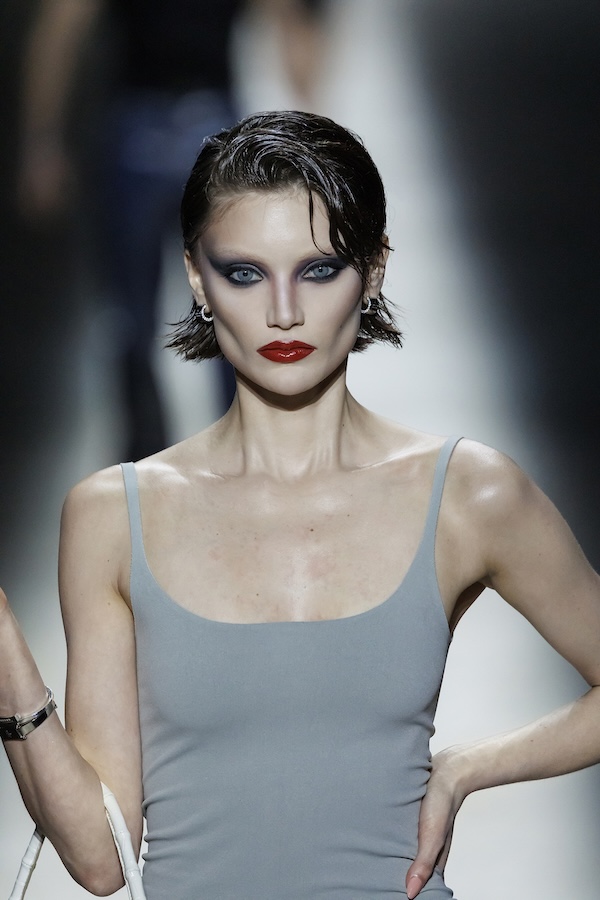
Gucci Fall Winter 2026: New Silhouettes and Technical Innovation in the Collection
Analysis of the Gucci Spring collection: seamless garments, sartorial hybrids and reinterpreted accessories
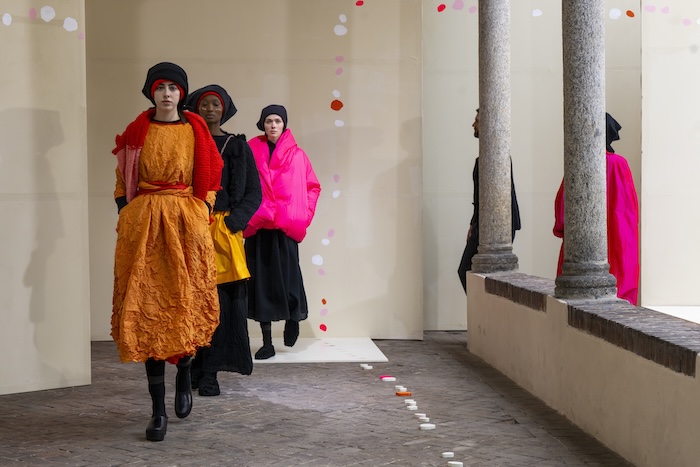
Daniela Gregis's Autumn - Winter 2026 - 27
Daniela Gregis's Autumn/Winter 2026/27 collection is a journey of colours,
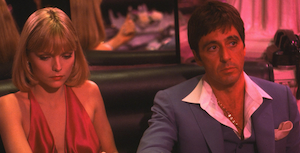
Ben Hecht: Screenwriter and Pioneer of Hollywood Cinema
Ben Hecht's Contribution to Cinematic Screenwriting
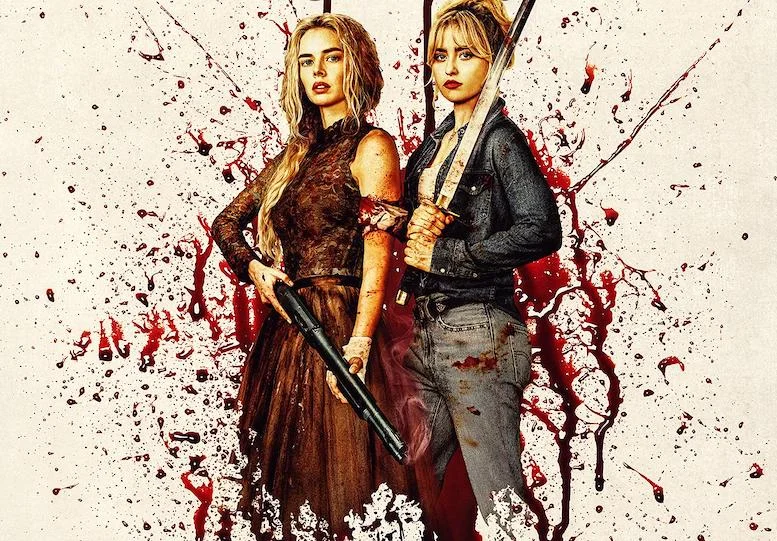
Horror movie Ready or Not 2: Here I Come, deadly hunt with Samara Weaving and Kathryn Newton
Discover Ready or Not 2, the comedy movie with Kathryn Newton, Samara Weaving, Elijah Wood. Plot, cast, release, trailer
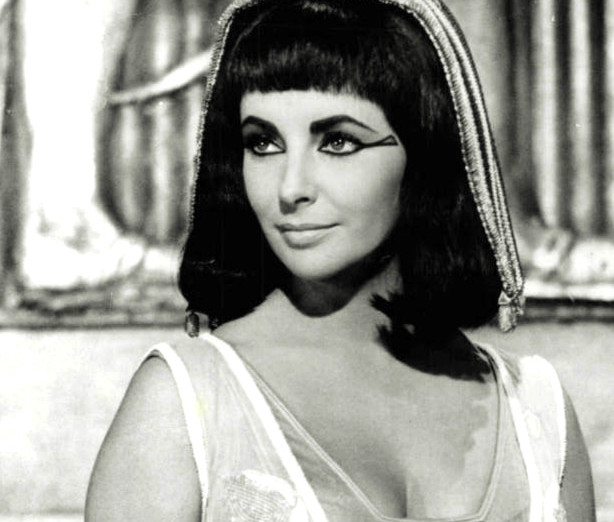
Elizabeth Taylor: Hollywood Stardom
Born February 27, she redefined the American cinema system
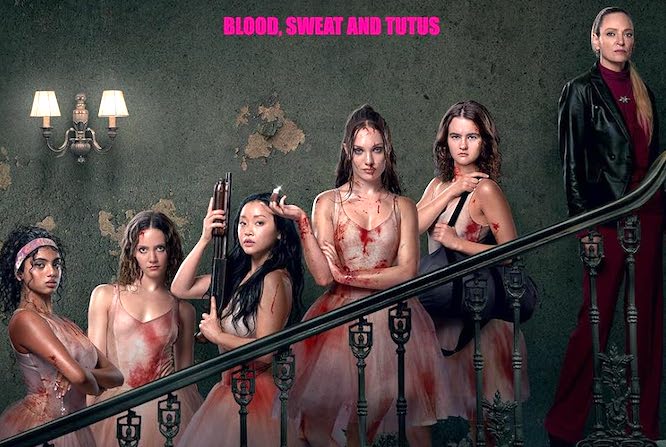
Action movie Pretty Lethal, lethal ballet with Uma Thurman and Iris Apatow
Discover Pretty Lethal, the thriller movie with Uma Thurman, Maddie Ziegler, Lana Condor, Iris Apatow. Plot, cast, trail
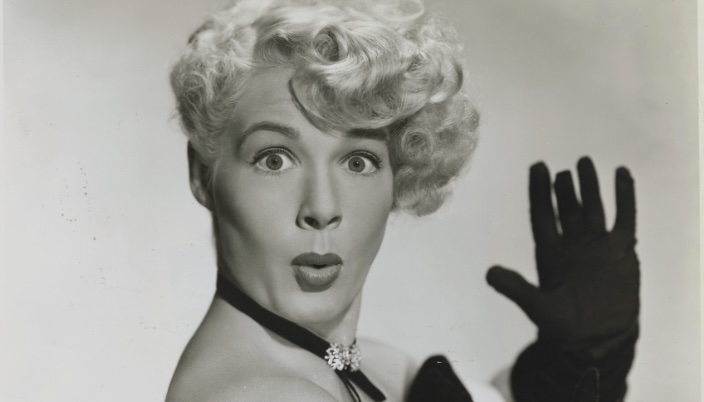
Betty Hutton, the "Blonde Bombshell" of Hollywood cinema
Born on February 26, Betty Hutton redefined the musical
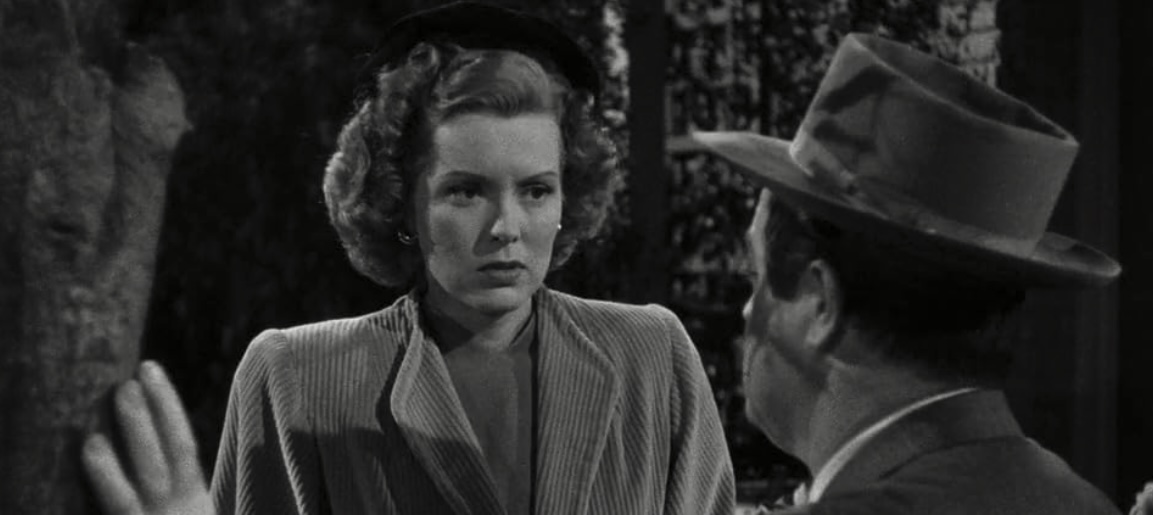
Brenda Joyce: the Jane interpreter who left Hollywood at the peak of success
Brenda Joyce, born in 1917, portrayed Tarzan's companion in five films before retiring

